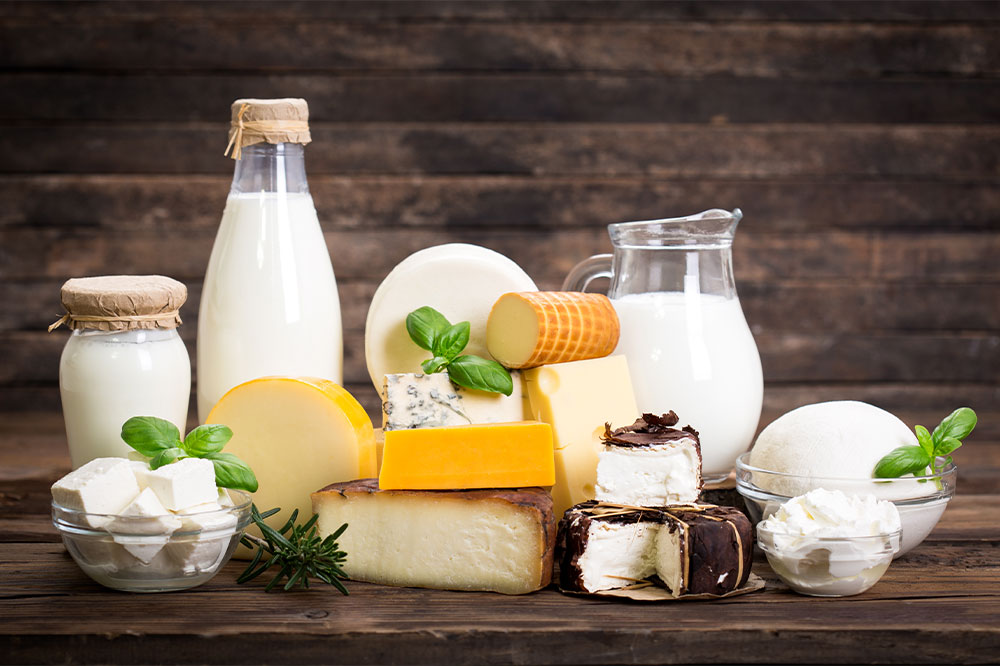Idiopathic pulmonary fibrosis – Foods to avoid

Idiopathic pulmonary fibrosis or IPF is a chronic lung condition where a patient experiences difficulty breathing due to scarred and strained lungs. The condition is generally seen in people aged 70 years or above. The exact cause of IPF is not known. However, there are measures that can be taken to manage the condition and lifestyle. While some foods help manage the condition and control its symptoms, there are foods that result in exacerbated symptoms.
This article talks about the foods that are better avoided with IPF.
Dairy
Dairy is one of the food groups that should be consumed in small portions. Idiopathic pulmonary fibrosis patients must try to avoid it completely. Milk and other milk products can lead to increased phlegm and mucus production in the body. This can, in turn, contribute to difficulty in breathing for the patients. It can also lead to increased coughing and wheezing, exerting excessive pressure on the lungs. Daily consumption of dairy products like ice cream and butter should be avoided at all costs.
Dairy alternatives like soy milk, tofu, almond milk, and other plant milk products can be used.
Processed meat
Processed meats have long been condemned for their potential to cause harm to an individual’s health. Foods like salami, sausages, and other cured meat are harmful to individuals for health concerns. These foods often contain added salts and preservatives like nitrates to increase the shelf life of the meat and make its color appear more appealing. The excess amount of salt in processed foods leads to water retention that can cause patients with idiopathic pulmonary fibrosis to experience difficulty breathing.
It is advisable to opt for nitrate-free options or avoid deli-meats in its entirety to avoid complications that arise from these foods.
Sodas
Sodas or other foods with added sugars are best avoided for patients with idiopathic pulmonary fibrosis. The high sugar content in sodas can lead to increased inflammation. It is advisable for IPF patients to maintain their weight to avoid difficulty breathing. Additionally, the carbon dioxide in these carbonated beverages can also cause an increase in breathing difficulties.
Sodas can be substituted with beverages with no added sugars, like infused water, fruit or vegetable juices, and tea.
Salty foods
As discussed above, intake of salty foods can lead to complications like water retention and bloating. While these might not seem like a major cause of concern, they can make breathing difficult for IPF patients. Bloating can exert pressure on the diaphragm, resulting in added discomfort.
To avoid excessive salt intake in daily meals, cut back on preserved and packaged foods. Opt for seasonings with more herbs and spices instead of salt. Check food labels to avoid stocking pantries with snacks and foods with high salt, sugar, or preservative content.